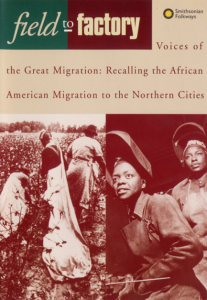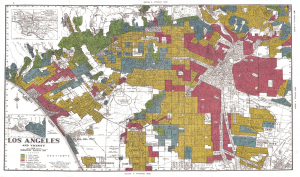The Voices of the Great Migration

https://search.alexanderstreet.com/view/work/bibliographic_entity%7Crecorded_cd%7C73329
In this audio documentary, it covers the Great Migration, in which “over six million African Americans left from the South” in the hopes for a better life (Wilkerson, 9). Throughout the film, many different stories of African American experiences during the Great Migration period are told which they experienced discrimination in many areas. When they reached the urban communities, they were unable to find work or if they did, their wages were very low. This caused them to live in very low income areas of the cities.
Sadie Tanner Mossell Alexander Speech
“These amendments are prohibitions against the federal government violating such fundamental rights as freedom“
In this speech, Sadie Tanner Mossell Alexander who was the first African-American woman to receive a Ph.D. in economics in the United States, and the first woman to receive a law degree from the University of Pennsylvania Law School. She was the first African-American woman to practice law in Pennsylvania. Sadie spoke to inform minorities in Pennsylvania that they can no longer stand for these injustices because they have protection under the law. Companies found loopholes in the laws to allow for the justification of discrimination in housing aspect.
HOLC Los Angeles

This source is a map that shows the red-lining issues during the great depression and new deal era. The map shows how the federal government mapped out areas based on racial demographic which was used by mortgage companies to see which areas they wished to give mortgages to. This map depicts the issue of red-lining which discriminated against African Americans and their option when it came to find housing in major cities. This also connects with the job discrimination as well because African American men were offered only factory jobs which meant that they need to live in more urban neighborhoods. Since they could only afford housing in the cities, they could not have the opportunity to leave in better neighborhoods and leave the red-lined areas. This was the hidden systematic discrimination set in place to hurt the African Americans.
